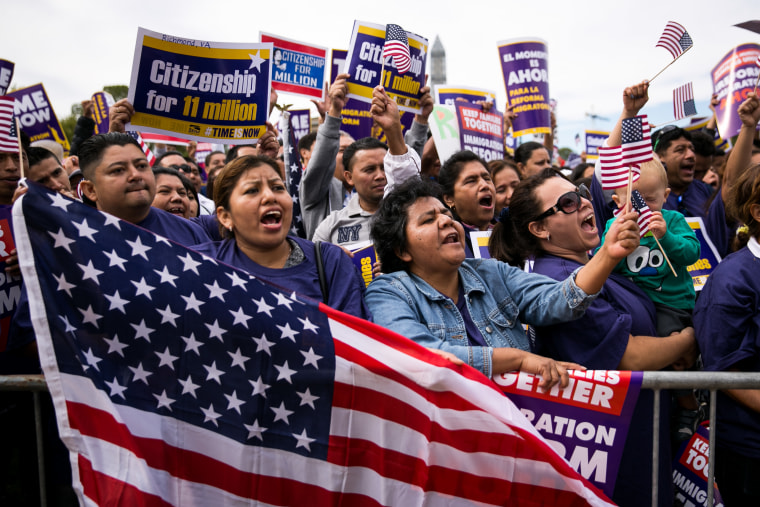Barring an 11th-hour collapse on Capitol Hill, the crises that have dominated the political world of late are poised to come to an end. The government will re-open; the debt ceiling will be raised; and policymakers can at least try to turn their attention to governing.
President Obama already has some ideas as to the national to-do list.
President Obama vowed Tuesday that he would pursue an immigration reform vote in the House the "day after" Congress reached an agreement to reopen the government and raise the debt ceiling. "Once that's done, you know, the day after -- I'm going to be pushing to say, call a vote on immigration reform," Obama told Univision's Los Angeles affiliate. "And if I have to join with other advocates and continue to speak out on that, and keep pushing, I'm going to do so because I think it's really important for the country. And now is the time to do it."
For House Republicans who hoped they could kill immigration reform, and use the shutdown as some sort of excuse, a rude awakening awaits. The Senate has already passed a popular comprehensive reform package, and if it reaches the House floor for an up-or-down vote, it's not unrealistic to think a bipartisan majority could be cobbled together.
The politics of this should prove to be fascinating. One the one hand, Republicans are already divided against themselves, so putting this issue on the nation's front-burner may deepen the fissures that already exist.
On the other hand, GOP officials may be looking for some kind of recovery strategy. If reason still has any influence at all over Republican decision making, passing a popular, bipartisan bill would do wonders for their poll numbers.
Keep in mind, after the Gingrich shutdowns in 1995 and 1996, Republicans were genuinely worried about losing control of Congress after getting blamed for the crisis. To prevent widespread losses, the party tried actual governing, passing all kinds of real legislation, including welfare reform, intended to give GOP incumbents accomplishments worth bragging about during their re-election bids.
Rational thought seems to be in short supply among congressional Republicans right now, but there's no reason they couldn't borrow a page from their own party's playbook. The House GOP could, in theory, rally behind the Senate's immigration-reform bill, pass it, stop the bleeding with Latino voters, and prove that they're finally ready to consider bipartisan governing.
Or they could do what Rep. Raul Labrador (R-Idaho) said this morning, and refuse to consider the bipartisan reform bill.
